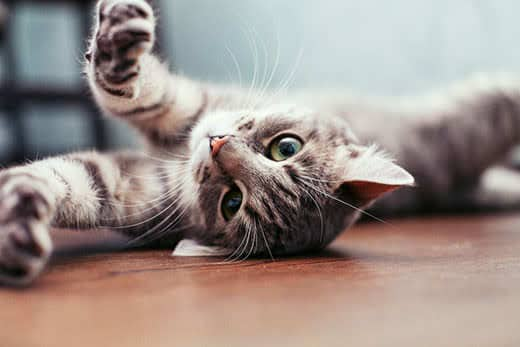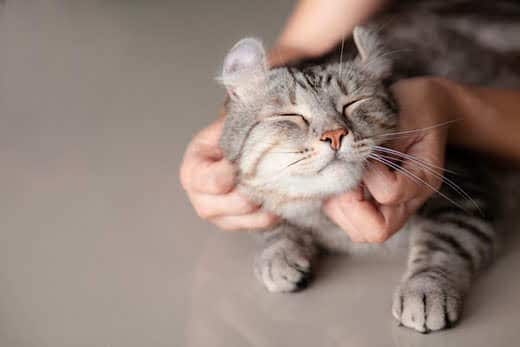
-
Find the right food for your petTake this quiz to see which food may be the best for your furry friend.Find the right food for your petTake this quiz to see which food may be the best for your furry friend.Featured products
 Adult Chicken & Barley Recipe Dog Food
Adult Chicken & Barley Recipe Dog FoodSupports lean muscle and beautiful coat for adult dogs
Shop Now Hill's Science Diet Adult Chicken & Beef Entrée Dog Food
Hill's Science Diet Adult Chicken & Beef Entrée Dog FoodChicken & Beef Entrée in a delicious loaf with complete & balanced nutrition to help keep adult dogs active and healthy
Shop Now Adult Large Breed Chicken & Barley Recipe Dog Food
Adult Large Breed Chicken & Barley Recipe Dog FoodSupports healthy joints, lean muscle, and beautiful coat for large breed dogs
Shop NowFeatured products Senior Vitality Adult 7+ Tuna & Vegetables Stew
Senior Vitality Adult 7+ Tuna & Vegetables StewImproves Everyday Ability to Get Up & Go
Shop Now Adult 7+ Indoor Chicken Recipe Cat Food
Adult 7+ Indoor Chicken Recipe Cat FoodSupports energy level and beautiful fur in mature indoor cats
Shop Now Adult Turkey & Liver Entrée Cat Food
Adult Turkey & Liver Entrée Cat FoodPrecisely balanced nutrition with the delicious taste of minced turkey & liver to help fuel the energy needs of cats during the prime of their life
Shop Now -
Dog
- Dog Tips & Articles
-
Health Category
- Weight
- Food & Environmental Sensitivities
- Urinary
- Digestive
- Joint
- Kidney
-
Life Stage
- Puppy Nutrition
- Adult Nutrition
- Senior Nutrition
Cat- Cat Tips & Articles
-
Health Category
- Weight
- Skin & Food Sensitivities
- Urinary
- Digestive
- Kidney
-
Life Stage
- Kitten Nutrition
- Adult Nutrition
Featured articles How to Properly Mix Wet & Dry Pet Foods
How to Properly Mix Wet & Dry Pet FoodsAn Orange cat eating from a bowl filled with mixed food
Read More What Is Littermate Syndrome? Pet Adoption Guide
What Is Littermate Syndrome? Pet Adoption GuideLearn more about littermate syndrome in dogs and cats and how to successfully navigate adoption and early socialization processes.
Read More The Science Behind Our Love for Pets
The Science Behind Our Love for PetsLearn the scientific reasons why we have such strong connections with our pets, and what science says about the love between humans and our furry friends.
Read More -


You may have heard your veterinarian talk about upper respiratory infections in cats before, but what are they and how do you know if your cat has one? Upper respiratory infections, otherwise known as URI, are a very common occurrence in domestic cats.
What Are Upper Respiratory Infections in Cats?
Cats develop upper respiratory infections from exposure to viruses and bacteria that cause sneezing, eye discharge and a whole host of other symptoms. These upper respiratory infections are very contagious since cats can be infected with both viruses and bacteria at the same time. Symptoms can range from mild to severe.
The most common type of URI in cats include Feline Herpesvirus Type-1 (also called feline viral rhinotracheitis, or FVR) as well as Feline Calicivirus, according to Pet Health Network. Bordetella bronchiseptica and Chlamydophila felis are the most common bacterial causes.

How Do These Infections Spread?
Typically, an infected cat will sneeze and spread the virus and/or bacteria in secretions from the nose, eyes or saliva. The infection can be spread from cat to cat, or by exposure to fomites, which is a technical term for any object that can carry virus or bacteria. Fomites can include food and water bowls, litter boxes, bedding, toys, carriers, cat trees, cages and even you!
Cats infected with herpesvirus become carriers of the virus for life. This means that they will carry the virus in a dormant state for their whole life, but they won't show signs or be contagious unless the virus is reactivated by stress. Sources of stress can include moving, boarding, other illness, surgery or introducing new cats to the home. Cats infected with herpesvirus do best in a quiet home where they are the only cat.
About half of the cats infected with calicivirus will carry the disease for a couple of months, a few may carry it for life. The concern with persistent carriers of herpesvirus and calicivirus is that these cats will not show symptoms but may still infect other cats.
Signs of Upper Respiratory Infections in Cats
In most cats, uncomplicated URIs last about 7 to 21 days. If your cat is immunosuppressed (meaning their immune system has trouble fighting infections) or has other issues, the URI may last longer. Once a cat is exposed, the virus or bacteria incubates for 2 to 10 days, and then symptoms develop. A cat is considered contagious the whole time.
Signs of upper respiratory infection in cats may include:
- Sneezing
- Fever
- Loss of appetite
- Low energy
- Red eyes, swollen eyelids or eyes swollen shut
- Snot
- Eye discharge — either clear, green, white or yellow
- Bad breath
Diagnosing Upper Respiratory Infections in Cats
Most of the time, cat upper respiratory infections are diagnosed by physical exam and history from the owner. Usually, the individual bacteria or virus is not identified unless the cat is not responding to treatment.
Your vet will conduct a complete physical exam and gather an oral history from you. If testing is required, usually a swab from the eye, nose or back of throat is collected. In rare cases, additional testing such as X-rays, blood tests and culture testing may be recommended.

Is My Family at Risk?
With rare exception, most of the infectious agents that cause URIs in cats will not pose an infection risk to people — they only infect cats. The exception is Bordetella bronchiseptica, which can, in rare cases, cause problems for people who are immunosuppressed. If anybody in your household develops signs of an upper respiratory infection or skin sores while your cat is sick, consult with your physician, and always use good hygiene practices to prevent the spread of disease.


Tasty Tips
Treating Upper Respiratory Infections in Cats
Thankfully, many times URI cases have generally mild signs that will resolve on their own over time (much like if you caught the common cold). However, if your cat has colored eye or nasal discharge, your vet may prescribe antibiotics, either orally or in a topical eye. If your cat is not responding, then your vet will change medications as indicated to appropriately treat the infection. If your cat only has mild sneezing or clear eye discharge, your vet may not recommend needing to use antibiotics.
Most cats with upper respiratory infections can be treated at home. If they are congested, providing humidification through steam treatment two to three times per day will help loosen secretions. You can easily provide steam treatment by shutting your cat in the bathroom for 10 to 15 minutes and turning the shower on hot so that it produces a lot of steam.
If your cat is experiencing nasal or eye discharge, gently clean it up using a warm, moist hand towel. When cats have upper respiratory infections, they may not have much of an appetite. Providing your cat with extra delicious canned food during this time is a good way to care for your cat. Canned food can be warmed up to increase the aroma, and has the added bonus of providing more moisture to your cat. If your cat still won't eat for more than a day or two, talk to your veterinarian about appetite stimulants.
If a cat is dehydrated, fluid therapy in the form of subcutaneous fluids or intravenous fluids may be recommended. Some cats are so sick that they must be hospitalized, but you can avoid this by seeking veterinary attention as soon as possible if your cat displays signs of a URI. However, keep in mind that URI infections are highly contagious between animals. Thus, you should notify your vet prior to arriving if you suspect your cat has a URI, so they can take necessary precautions to keep other animals at the hospital safe, especially those that may have a compromised immune system.
Keep your cat away from any cats that display signs of upper respiratory infection, and keep your cat up-to-date on vaccinations, which protect against several infectious causes of feline upper respiratory infections.


Dr. Sarah Wooten graduated from UC Davis School of Veterinary Medicine in 2002. A member of the American Society of Veterinary Journalists, Dr. Wooten divides her professional time between small animal practice in Greeley, Colorado, public speaking on associate issues, leadership, and client communication, and writing. She enjoys camping with her family, skiing, SCUBA, and participating in triathlons.
Related products

Improves Everyday Ability to Get Up & Go

Supports energy level and beautiful fur in mature indoor cats

Delectable chunks with tender chicken smothered in a rich gravy

Precisely balanced nutrition with the delicious taste of minced turkey & liver to help fuel the energy needs of cats during the prime of their life
Related articles

When you adopt a cat, you don't just gain a best friend; you also save her life. Here's why getting a cat from a local animal shelter makes so much sense.

Discover which cat toys games your feline friend might like, and how they are great sources of exercise. Explore our library of articles to learn more.

Learn how to litter train a kitten with this guide to potty training, including when to start litter training kittens and troubleshooting tips.

Discover how to train your cat, starting with very basic first steps that both reward good behavior and discourage the bad.

Put your cat on a diet without them knowing
Our low calorie formula helps you control your cat's weight. It's packed with high-quality protein for building lean muscles, and made with purposeful ingredients for a flavorful, nutritious meal. Clinically proven antioxidants, Vitamin C+E, help promote a healthy immune system.
Put your cat on a diet without them knowing
Our low calorie formula helps you control your cat's weight. It's packed with high-quality protein for building lean muscles, and made with purposeful ingredients for a flavorful, nutritious meal. Clinically proven antioxidants, Vitamin C+E, help promote a healthy immune system.

